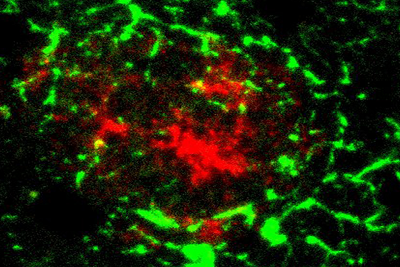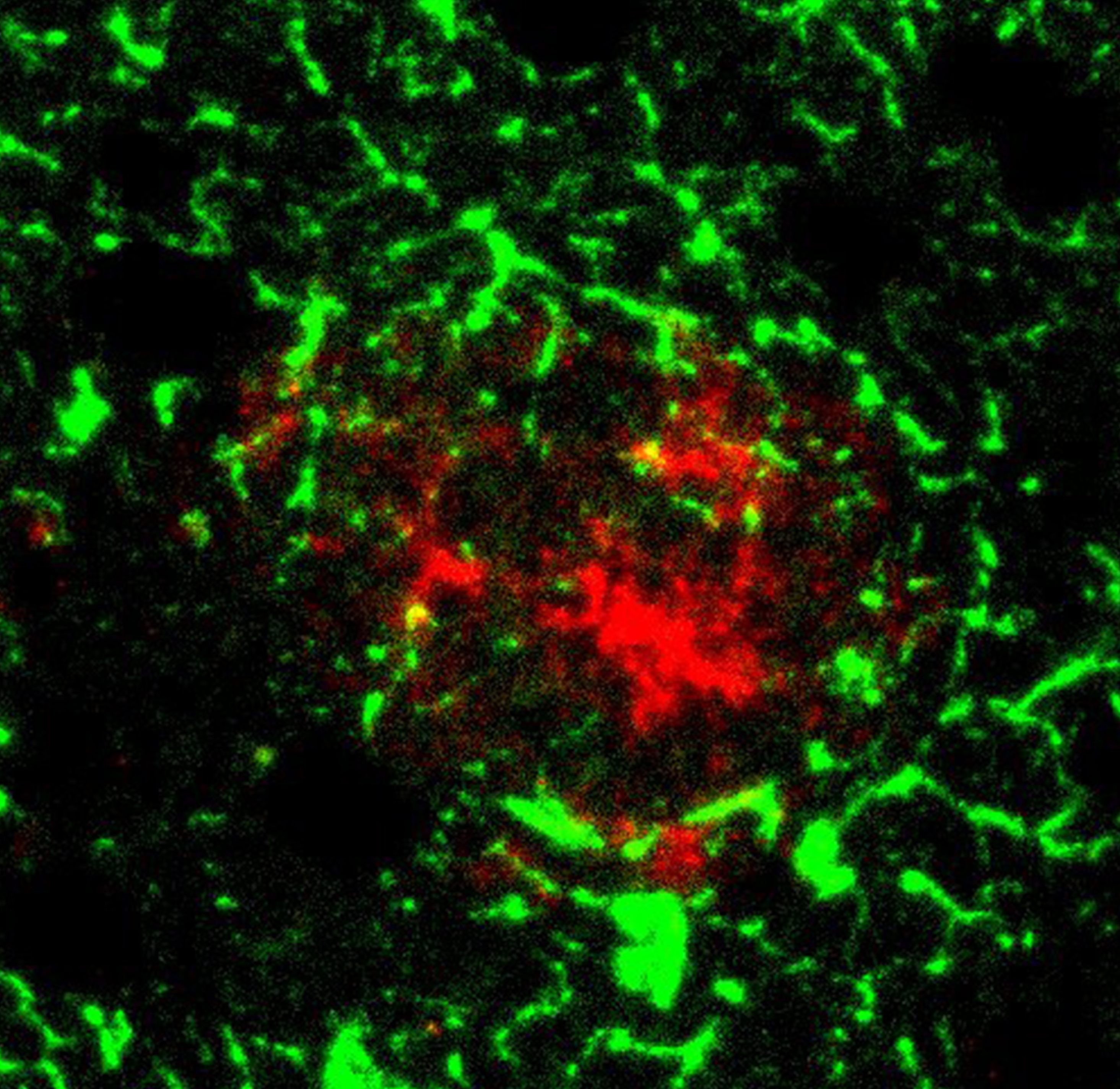Researchers identify enzyme that degrades Alzheimer's-related plaques Star-shaped brain cells directly involved


Activated astrocytes (green) surround the amyloid beta (red) accumulated in the brain of a mouse with Alzheimer's disease.
© 2018 Takuya Tatebe and Taisuke Tomita.
New research reveals that a type of star-shaped brain cells called astrocytes, which are not nerve cells, naturally secretes an enzyme that degrades the problematic amyloid beta plaques associated with Alzheimer's disease. Activation of astrocytes may lead to the development of novel therapeutics and diagnostics for the neurological disorder.
Alzheimer's disease is a major problem in aging societies. Mounting evidence points to the aggregation and depositing of amyloid beta in the brain as a harbinger of Alzheimer's. The most clinically important pathological feature of the disease is neurodegeneration. Astrocytes are the most numerous cell type within the brain, but their role in the pathology of Alzheimer's disease remains unknown.
The research group led by Professor Taisuke Tomita at the Graduate School of Pharmaceutical Sciences at the University of Tokyo and its collaborators identified a novel amyloid beta-degrading enzyme called kallikrein-related peptidase 7 (KLK7), which is secreted from astrocytes in the brain. Researchers used donated brain tissue samples from Alzheimer's patients to measure the relative expression level of KLK7 compared to other genes. KLK7 expression was significantly reduced in the brains of Alzheimer's patients.
Researchers then investigated the role of KLK7 using mice. Consistent with their findings from human brain tissue, mice with Alzheimer's that could not express KLK7 had a higher accumulation of amyloid beta in their brains.
These results imply that the astrocytes, which previously were not a focus of research related to Alzheimer's pathogenesis, play a direct role in amyloid beta buildup, and are a novel cellular target for the development of therapeutics and diagnostics.
"Recent research has revealed that astrocytes are involved in the protection of neurons and regulation of neuronal activity. Notably, although neurons undergo degeneration in brains with Alzheimer's disease, it is well known that the activity of astrocytes is altered without significant change in the cell number," said Tomita. He continues, "To date, several approaches for neurons have been tested to develop drugs for Alzheimer's. However, we believe that strategies to target the remaining astrocytes, rather than dying neurons, may lead to more effective therapeutics and diagnostics for the disease."
Papers
Kiwami Kidana, Takuya Tatebe, Kaori Ito, Norikazu Hara, Akiyoshi Kakita, Takashi Saito, Sho Takatori, Yasuyoshi Ouchi, Takeshi Ikeuchi, Mitsuhiro Makino, Takaomi C. Saido, Masahiro Akishita, Takeshi Iwatsubo, Yukiko Hori and Taisuke Tomita, "Loss of kallikrein-related peptidase 7 exacerbates amyloid pathology in Alzheimer's disease model mice," EMBO Molecular Medicine: January 8, 2018, doi:10.15252/emmm.201708184.
Link (Publication )
)
Related links
- Graduate School of Pharmaceutical Sciences

- Laboratory of Neuropathology and Neuroscience, Graduate School of Pharmaceutical Sciences






